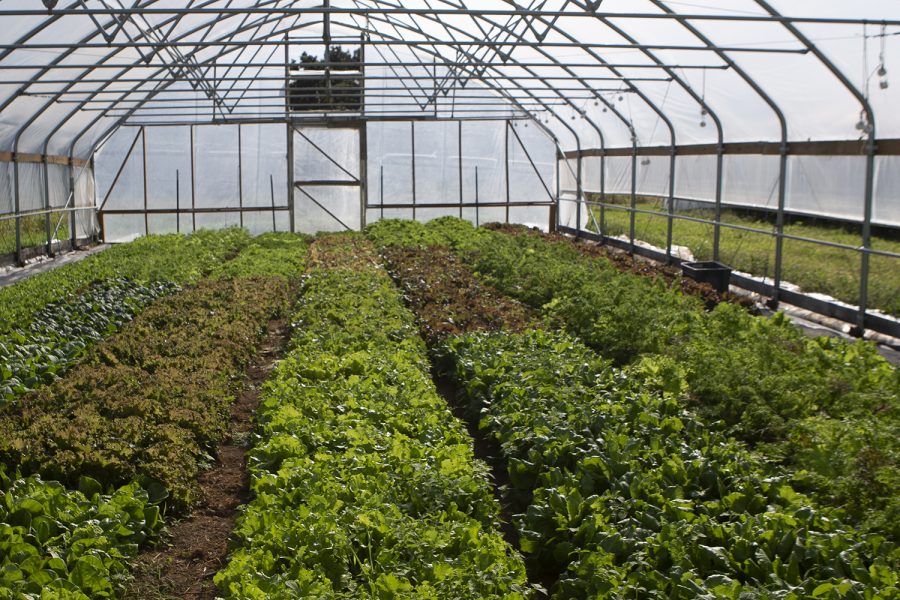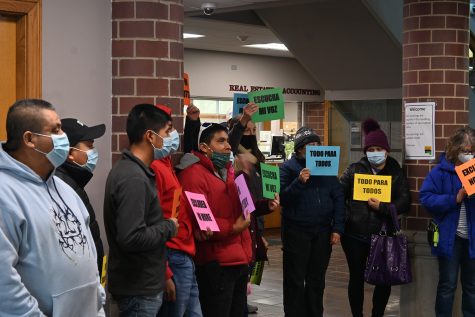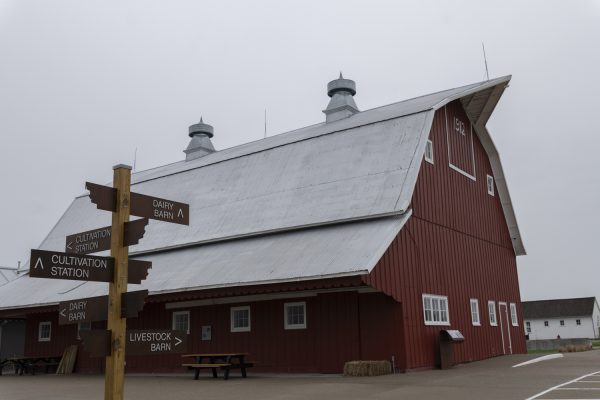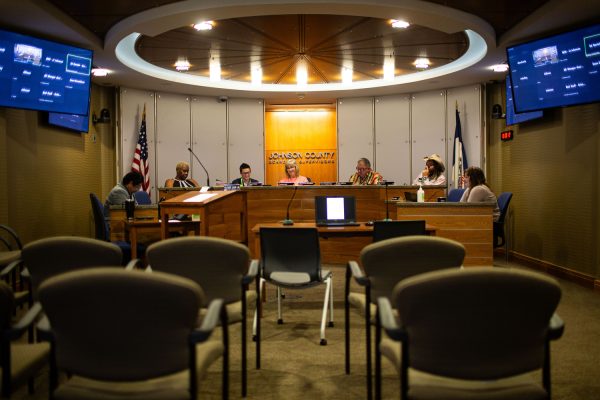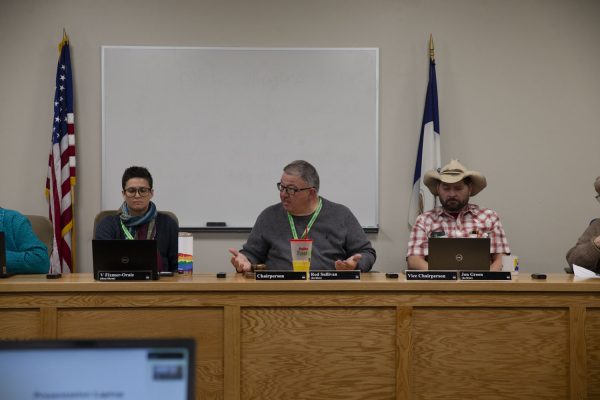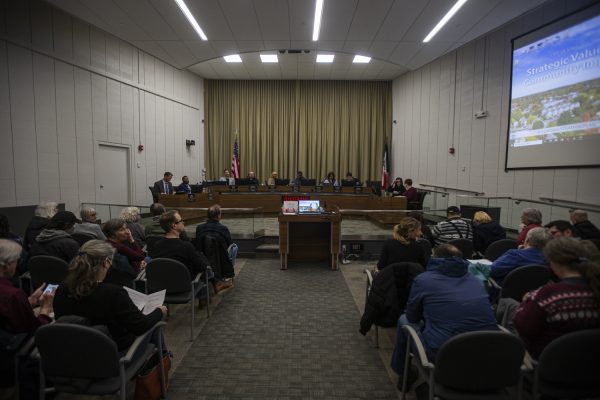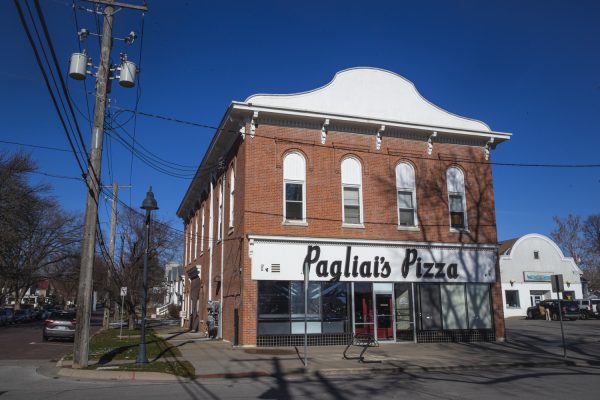Veggies Rx brings Johnson County farmers and food pantries together
The new program aims to help food-insecure residents by providing them with access to fresh produce from local farms in Johnson County.
Plants in a greenhouse are seen at Sundog Farm & Local Harvest CSA on Tuesday, Sept. 24, 2019.
September 24, 2019
Food donations pile up largely in the form of canned goods, so fresh produce can be difficult for food banks to provide. However, a new program hopes to unite farmers and food pantries in Johnson County by providing local organic produce for residents.
The new Veggies Rx program is the result of a collaboration between Coralville Community Food Pantry, North Liberty Community Pantry, University of Iowa Hospitals and Clinics’ Upstream Clinic, and Johnson County Food Pantry.
The pilot program includes three Iowa farms — Sundog Farms in Solon, Echocollective Farms in Mechanicsville, and Wildwoods Farms in Iowa City.
“Most of the systems that food pantries receive food through [are] government programs, [and] donations,” Johnson County Local Foods Coordinator Ilsa DeWald said. “Most of the food donations coming in are canned or preserved items, so there’s often a need for fresh produce.”
The first program of its kind in Iowa, Veggie Rx is designed to help low-income individuals who face diet-related health issues, according to a news release from the Coralville Community Food Pantry.
RELATED: Core course offered to UI students addresses dangers of farming
The Veggie Rx farms classify as “community supported agriculture,” and DeWald said the most common farm model in this kind of agriculture requires that members pay a fee similar to a subscription. So, they in turn receive a share of the produce being grown on the farm.
DeWald said potential consumers will learn about the program through Coralville and North Liberty Food Pantries, as well as the mobile clinics that visit the pantries. Participants in mobile clinic health screenings with diet-related health issues will randomly receive offers to participate in Veggie Rx.
DeWald added there is an educational component to the program, which teaches participants how to prepare the produce.
A $50,000 grant from MidwestOne supports Veggie Rx. An assistant retail manager with the bank, Megan Lehman, said the program is currently limited to 40 participants with a possibility of expansion in the future.
“We don’t want to overestimate what we can handle in the first year,” she said. “If it works out and we can do more, then we’ll do more.”
Although the program does not currently partner with any food pantries in Iowa City, Lehman said there is a possibility to add those organizations in the program’s future.
Echocollective farmer Molly Schintler said she estimates the program will bring in around $8,600 for the farm. She added that the farm is looking to expand its accessibility to produce as well.
“The Veggie Rx program is amazing in that it’s going to help us grow our business, and simultaneously we’re transitioning to a sliding scale payment model, meaning our members next year will pay for their weekly [community supported agriculture] share based on income,” she said.
RELATED: Plate of insecurity: A student’s struggle to access food
Schintler said community supported agriculture provides its members with options beyond the produce normally available at the grocery store.
“In Iowa, a lot of farms grow just one or two crops, those being corn, soybeans, pigs, or chickens,” she said. “We don’t grow any of those on our farm. We’re a diversified farm growing over 100 different varieties of fruits and vegetables.”
Lehman said she hopes the program will be a model for other communities.
“Our really big goal is to introduce this to the community as something that brings value so we can continue fundraising,” she said. “The goal of all goals is continuous funding, a continuous program that can be a learning program for other counties, and we can grow it that way.”



